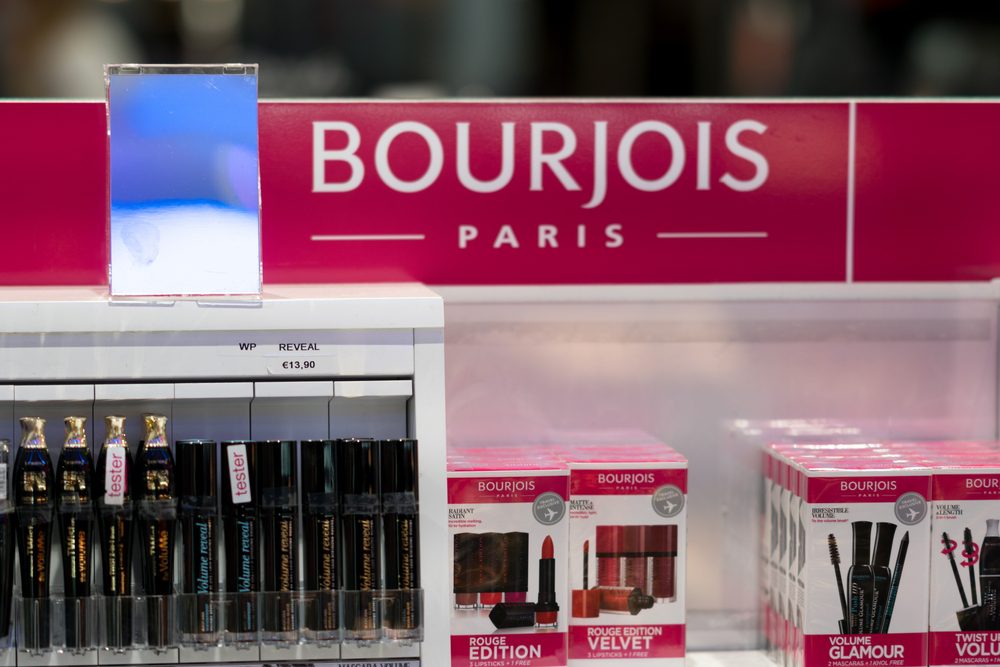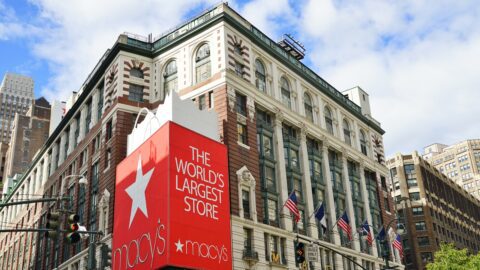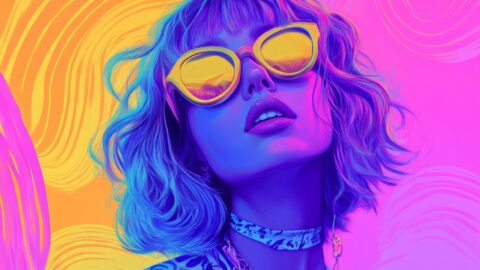Coty has unveiled the Magic Mirror augmented reality (AR) makeup try-on experience at its Bourjois boutique in Paris. The kiosk blends physical and digital experiences: When a customer picks up a lipstick, the kiosk’s computer vision senses which one it is and applies the chosen color to the customer’s image in the Magic Mirror.
Shoppers can complete the look with onscreen eye makeup and blush matched to their individual skin tones. Magic Mirror also features a selfie function that produces an image, containing links to purchase the featured products on the Bourjois e-Commerce site.
A survey of shoppers by Coty found that 72% said they want the in-store beauty experience to be a mixture of physical and digital elements, to make it feel more “real” and “believable.” Additionally, the use of AR technology solves issues of testers not always being available, alleviates hygiene concerns and prevents shoppers’ lips from becoming stained.
“Most women intuitively prefer to play with a lipstick rather than touch a screen, as there is an inherent sensual aspect in cosmetics packaging that no technology can replace, and our new Magic Mirror provides this desired experience to shoppers,” said Elodie Levy, Coty Global Digital Innovation Director in a statement.
The Magic Mirror was developed by Coty in collaboration with Holition, an AR solution provider, and PERCH Interactive, a digital and interactive display company. The installation combines smart camera technology provided by PERCH with the AR capabilities of FACE by Holition.
AR technology is gaining traction among beauty retailers in general. Eylure has partnered with Perfect Corp., a beauty app developer, to showcase some of its products on the YouCam Makeup app. The technology lets shoppers try on lashes from multiple collections and match them with signature beauty looks.
In March, L’Oréal acquired ModiFace, an AR beauty company. The deal is expected to bring additional AR and AI tools to the retailer’s 34 international brands, including Lancôme, Kiehl’s, Giorgio Armani, Urban Decay and Maybelline. L’Oréal had previously introduced an app in partnership with ModiFace called “Style My Hair,” which lets shoppers see the effect of different hair dyes.
Prior to its acquisition, ModiFace had collaborated with more than 80 beauty brands, including Sephora, with which the AR provider developed the “Sephora Virtual Artist” mobile app and in-store mirrors. The app works through Facebook Messenger, allowing shoppers to upload a photo of themselves to the virtual chatbot, which then directs them to a compatible shade of makeup and suggests products they may want to purchase.
Sephora has been embracing digital technology at physical stores through two Beauty TIP (Teach, Inspire, Play) Workshop concepts in New York City. In addition to Sephora Virtual Artist, the locations feature:
- The “Moisture Meter,” a digital tool that measures moisture in the skin;
- A skincare studio with a touchscreen display to access Sephora’s “Skincare IQ” diagnostic; and
- A fragrance studio that features “InstaScent” sensory technology.
Cost is the largest hurdle retailers face as they adopt AR and virtual reality (VR) programs, according to Khin Sandi Lynn, Industry Analyst at ABI Research. However, the price is expected to drop as more service providers enter the mainstream and the technology become more common.













